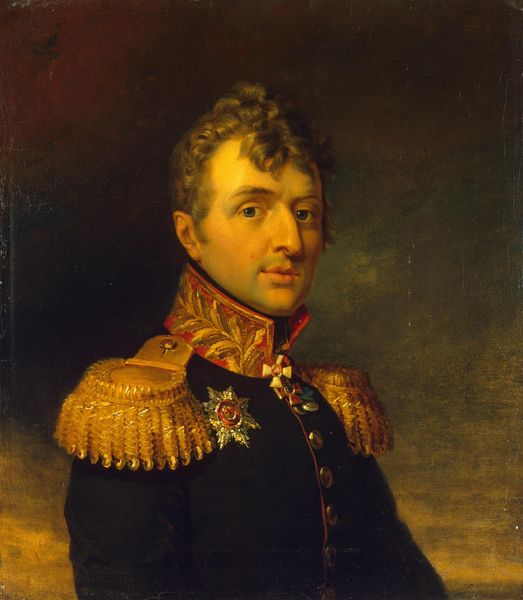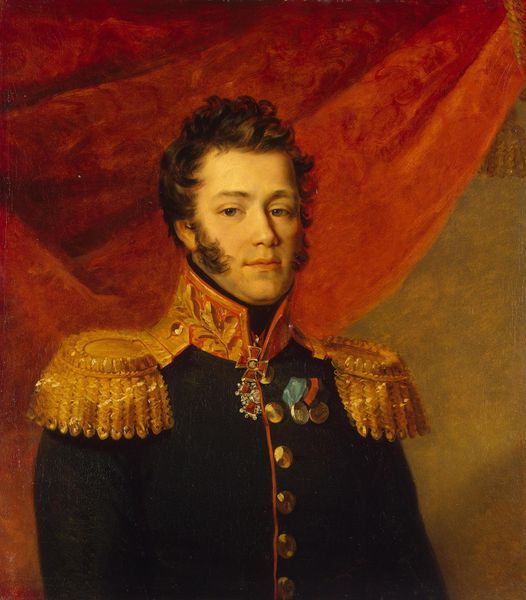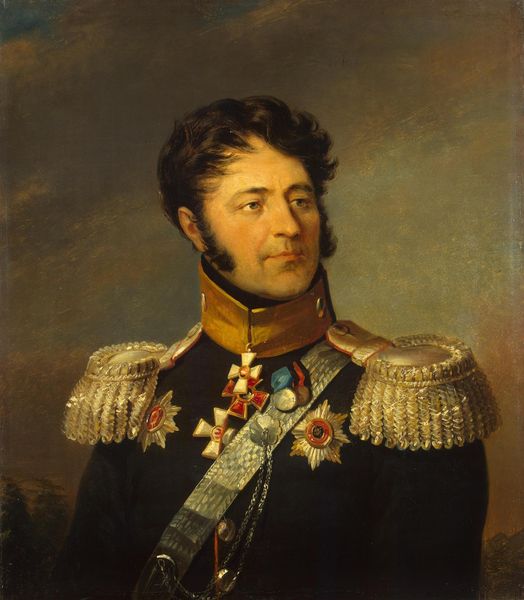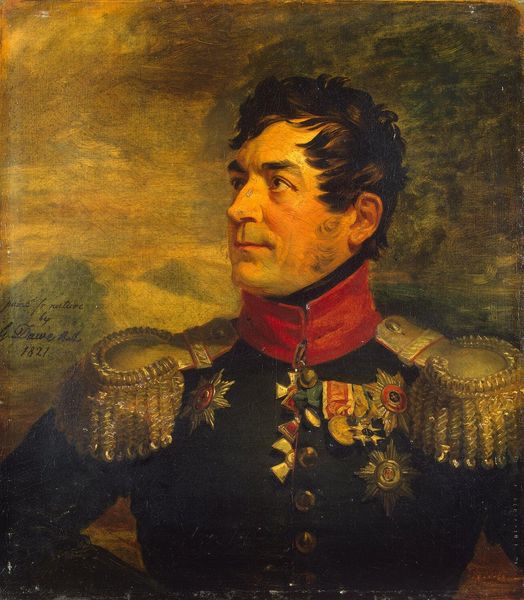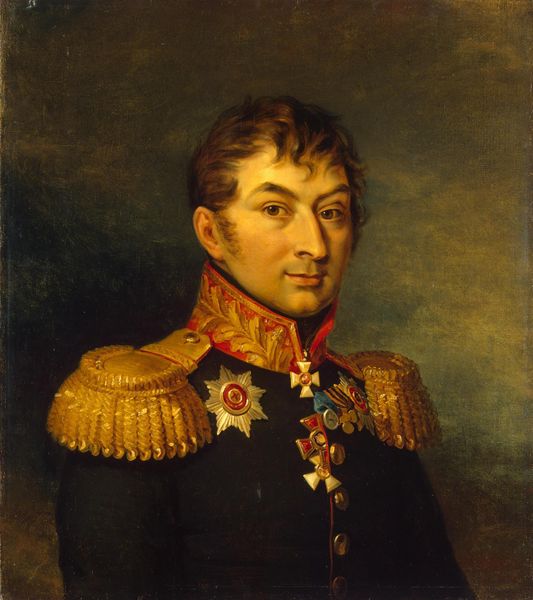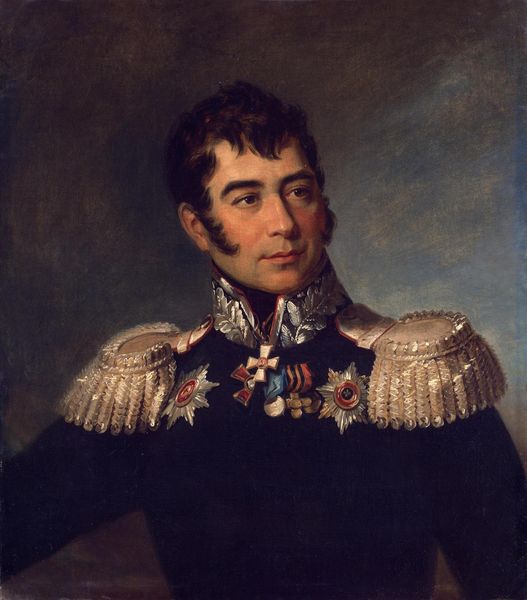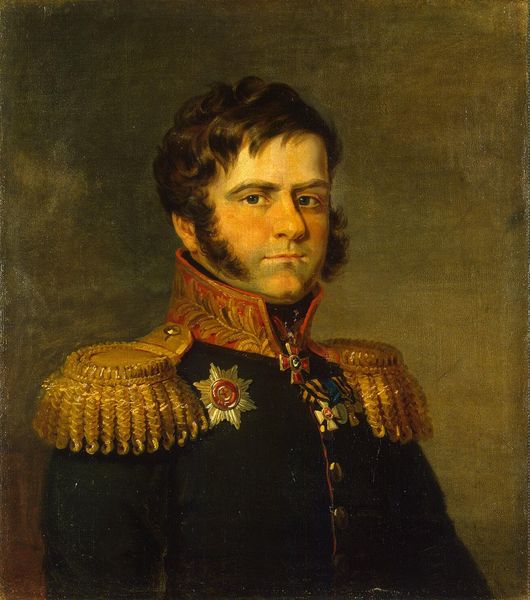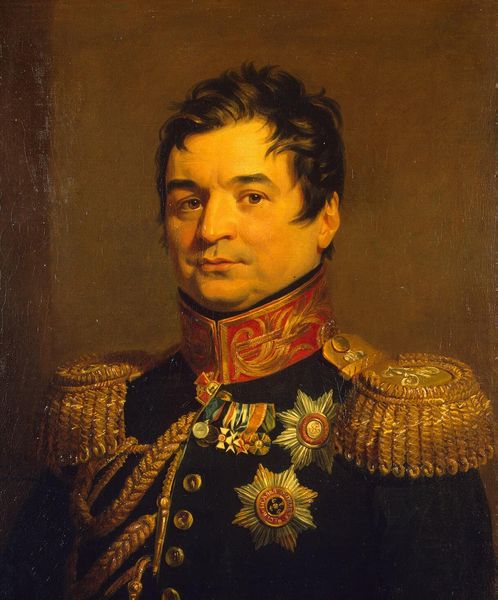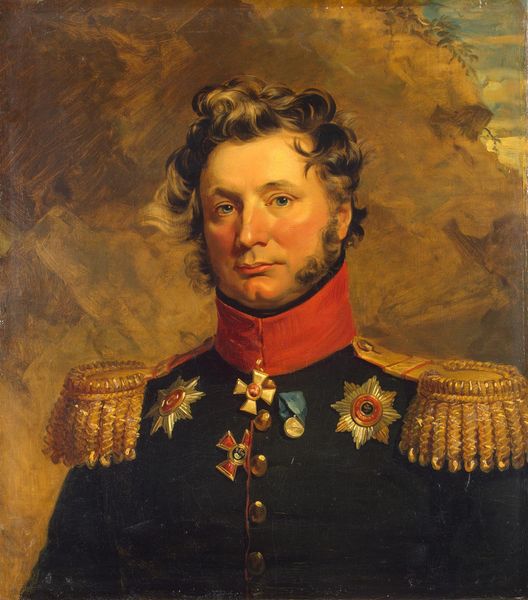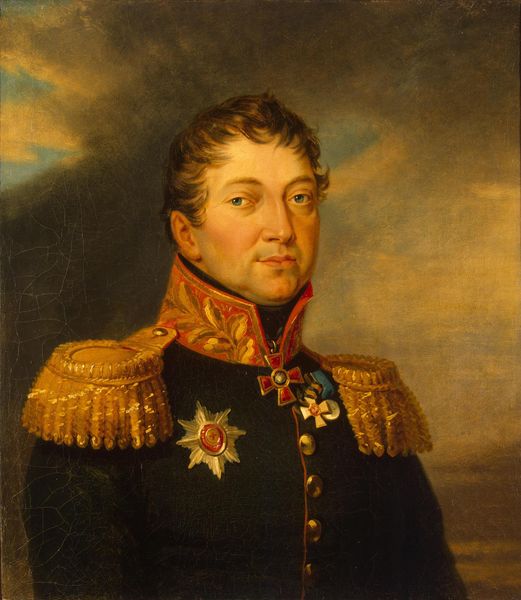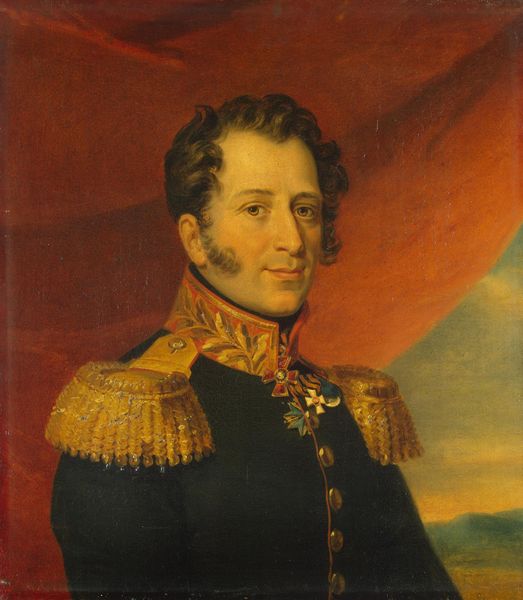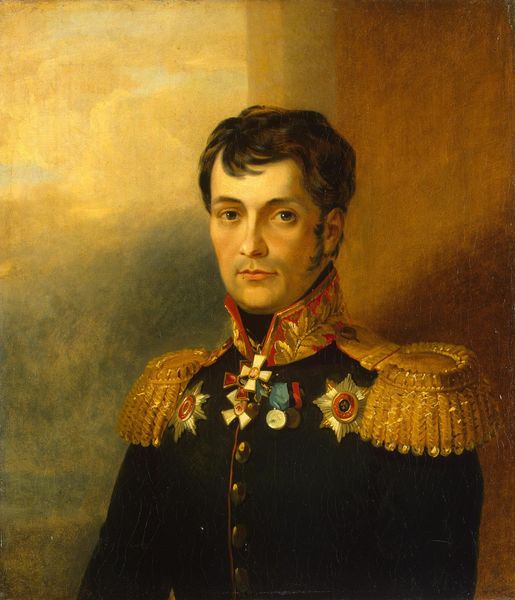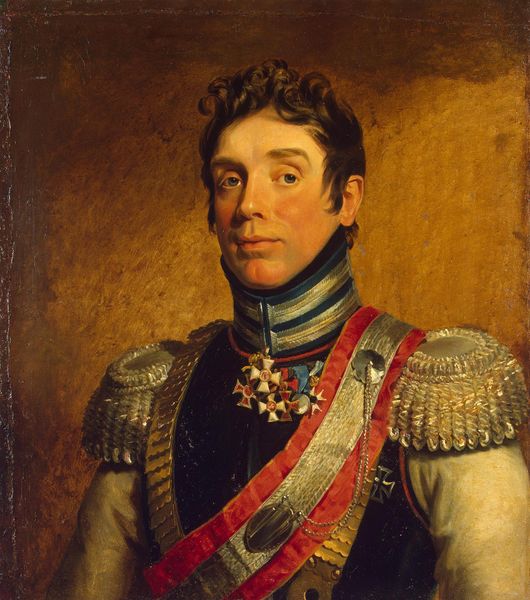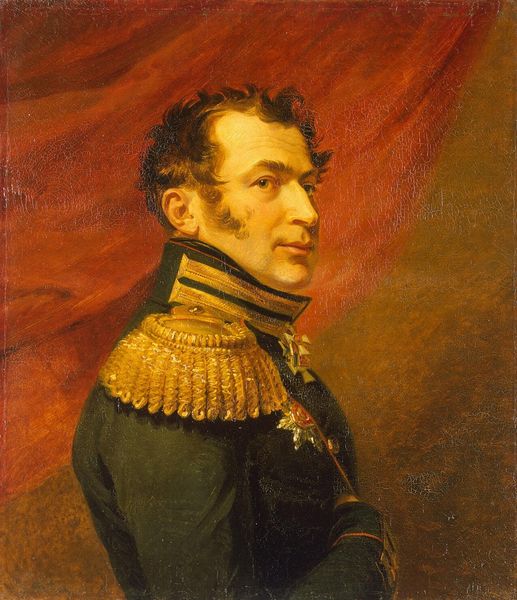
Portrait of Baron Karl Clodt Von Jürgensburg, Russian General 1825
0:00
0:00
oil-paint
#
portrait
#
portrait
#
oil-paint
#
romanticism
#
history-painting
#
academic-art
Copyright: Public domain
Editor: Here we have George Dawe's 1825 "Portrait of Baron Karl Clodt Von Jürgensburg, Russian General," rendered in oil paint. The overall impression is one of formal austerity, yet the general's gaze hints at a more complex inner life. What stands out to you? Curator: What I see here, beyond a formal portrait, is a snapshot of power structures in 19th-century Russia. Consider the social implications of Dawe, an Englishman, commissioned to paint portraits of Russian generals who had fought against Napoleon. Whose narratives are amplified and whose are silenced in this representation of history? Editor: That’s fascinating. I hadn’t thought about the artist's nationality influencing the piece in that way. So, are you suggesting the portrait may subtly reinforce a certain perspective on the war? Curator: Exactly. Think about the symbolism inherent in the military attire. What does it signify about class, privilege, and the roles available to men of this era? Who benefits from such imagery, and who is excluded? Dawe’s technique, rooted in Romanticism, idealizes the sitter, furthering the agenda of those in power. We must be critical of how these images shape our understanding of history and identity. Editor: So, by understanding the social context, we can move beyond admiring the artistic skill and actually analyze the portrait’s underlying messages about power. Curator: Precisely! It's not just about brushstrokes; it's about critically examining the narratives woven into the very fabric of the painting. Editor: That’s a totally new way to look at it. I appreciate you making me think about how historical context shapes our view. Curator: And I appreciate your fresh perspective and willingness to question established narratives.
Comments
No comments
Be the first to comment and join the conversation on the ultimate creative platform.
